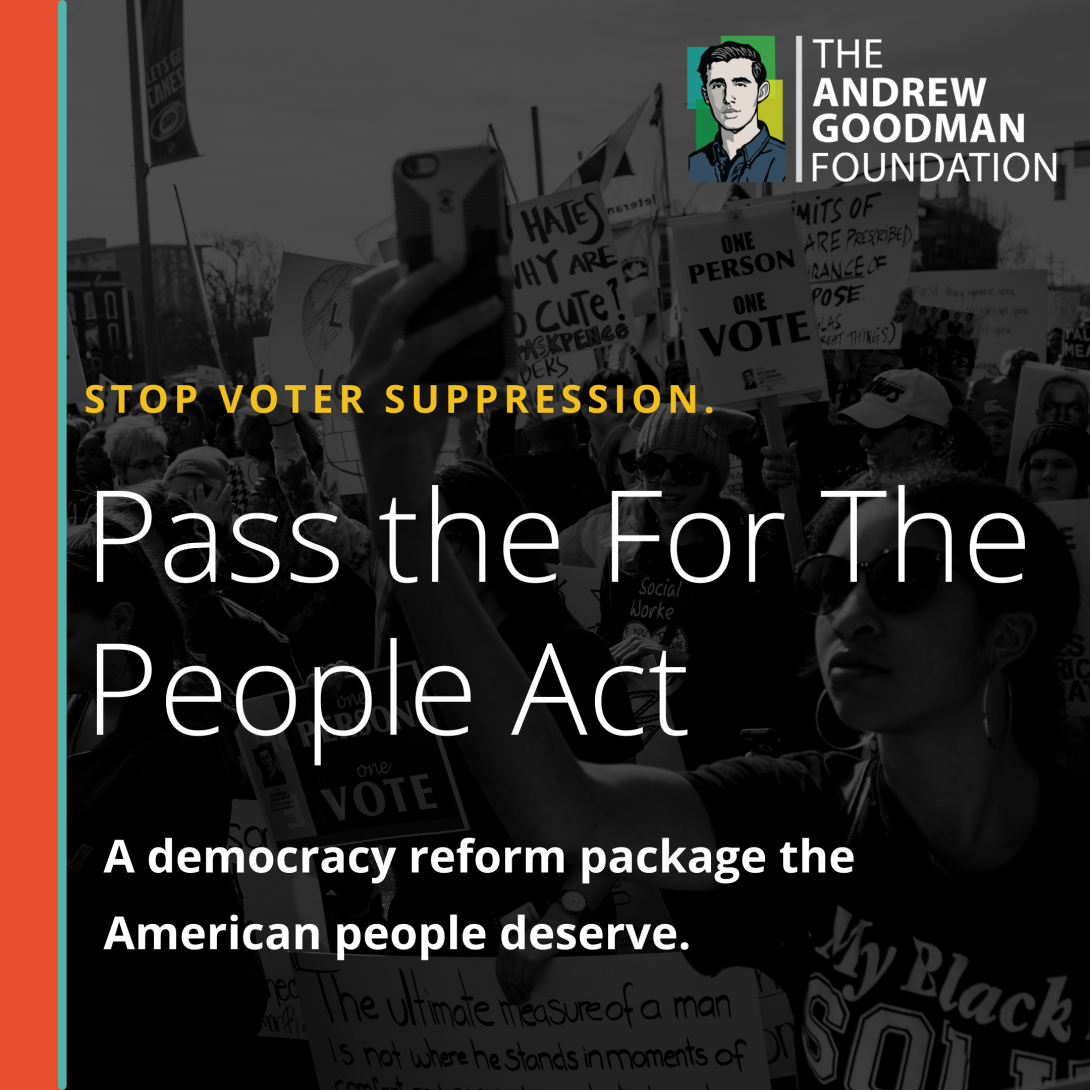VOICES: The fixes to Georgia's voting restrictions await action in Congress

Last month, the Georgia state legislature made voting significantly harder by reducing absentee hours and access to drop boxes, increasing ID requirements, and criminalizing the distribution of water and food to voters waiting in line. Honestly, it's been a rough couple of months to be a Georgian. From the racially-motivated shootings at massage parlors in our community, to the passage of one of the largest pieces of voter restriction legislation in the country, a bizarre sense of chaotic hopelessness permeates the Peach State. Even as staff at The Andrew Goodman Foundation, in moments like these, we find ourselves with more questions than answers.
In the summer of 1964, Andrew "Andy" Goodman and his fellow Freedom Summer volunteers, James Earl Chaney and Michael Schwerner, convened in Mississippi to register Black Americans to vote. They were led by none other than Georgia legend, the late U.S. Rep. John Lewis. On Goodman's first day in Mississippi, the three young men were murdered by the Ku Klux Klan. Their killers knew there was power in their work and murdered them to send a message to the world. That message was repeated last week by the Georgia legislature. The message is this: The power of voting is so important that some put drastic measures in place to stop it.
Working in the voting rights space affords us a unique perspective. We work directly with students, the newest generation of civic leaders. They have unique insights and perspectives that help inform the work we do. As residents of Georgia, we believe it is important to stay updated on local elections and news not just for ourselves, but also for our students and community. But the passage of last month's law happened completely under the radar, with little to no input from voters or organizers like us. As we often tell our students, voter confusion is voter suppression. This was no different. The process was confusing and it was difficult to know what was happening and when.
Now what? With the slew of anti-voter restrictions passed last month, voting in Georgia will be more difficult, especially for young and Black people. Early and absentee voting, methods preferred by the youth in last year's election, were severely limited. One answer we do have is this: Our best hope to ensure the survival of democracy is to pass the For the People Act and the John Lewis Voting Rights Advancement Act in Congress. These two landmark pieces of legislation have the power to reverse a multitude of voter suppression laws enacted in Georgia and other states around the country. This is our path forward. Through the passage of these acts, Georgians have the opportunity to continue the legacy of John Lewis, one of our civil rights founding fathers. We have the opportunity to lead the way towards a working democracy, proving that the acts of a few partisan legislators do not define our great state as a whole. This is what we tell our students. This is what we tell ourselves.
Our efforts in Georgia and elsewhere have revolved around encouraging young voters to tell their elected officials to #RespectMyVote. They turned out in record numbers for the 2020 election and now it's time for their representatives to listen up. In a true democracy, everyone has equal access to the ballot, and our #RespectMyVote campaign empowers students to contact their legislators, and let them know that restricting their vote is not okay. Their voice is a key player in our democracy and they have a right to be heard. Add your voice alongside thousands of students standing up for the vote by visiting the #RespectMyVote website. With this one small act, you can help to set Georgia — and the nation — back on track.
Tags
Wambui Gatheru
Wambui Gatheru is the Senior Program Manager-Movement Strategy at The Andrew Goodman Foundation. She is a proud first-generation Kenyan-American, organizer, activist, and social commentator.
Gabrielle Slaughter
Gabrielle Slaughter is a program manager at The Andrew Goodman Foundation. With passions including dance, social justice, and public interest, she is a servant leader and mentor for young Black and Brown girls in her community.

